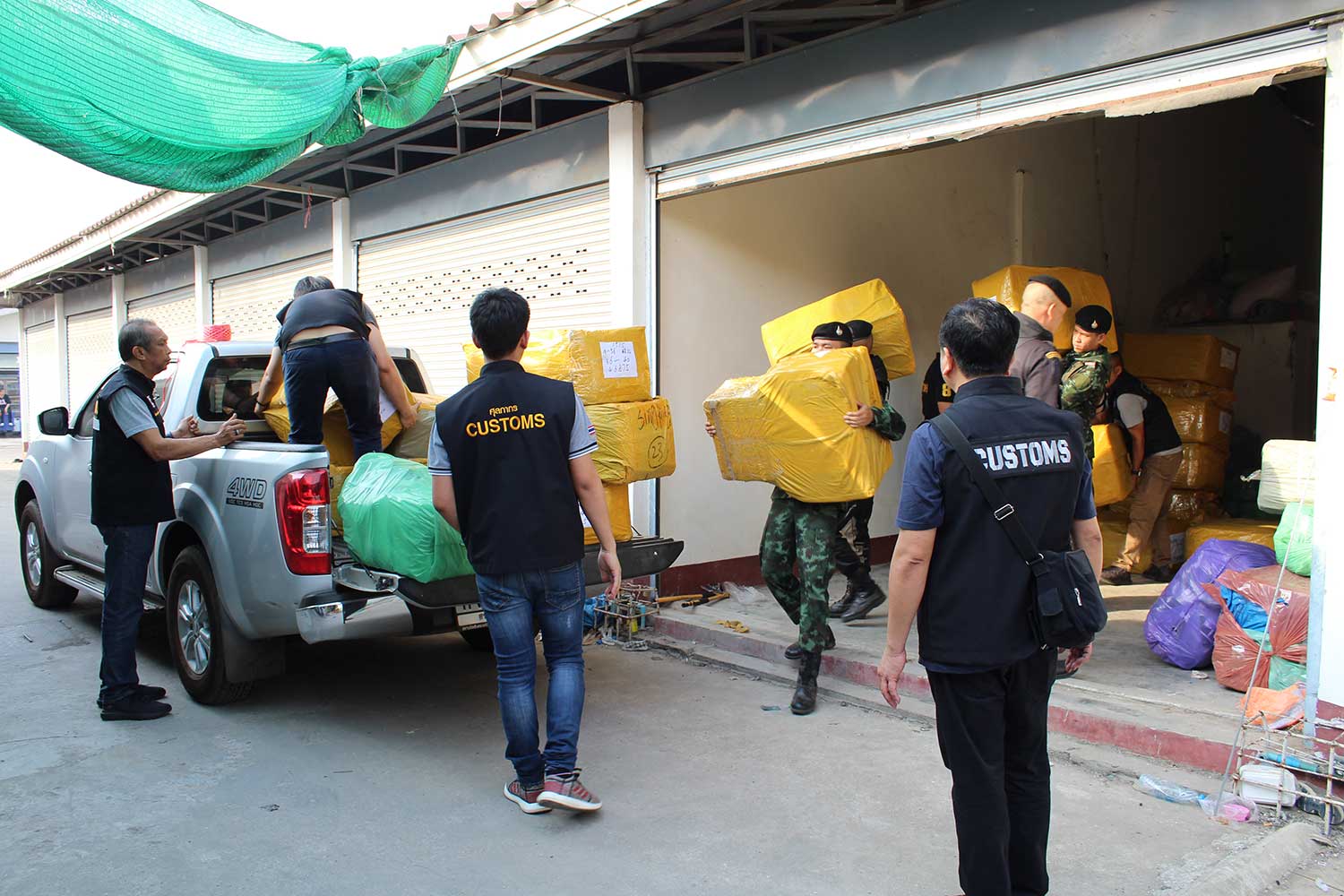
B30m in fake goods seized at border market
SA KAEO: Authorities on Saturday seized fake brand-name goods worth about 30 million baht at the Rong Kluea border market, one of the country’s most notorious counterfeit product hubs.
A team of 50 soldiers, police and customs officials searched two rented godowns at the market in Aranyaprathet district, just across from Cambodia. They found a variety of branded shoes, bags and clothing stored there.
The raid followed a tip that a large quantity of counterfeit goods would be smuggled from the border area to the site late on Friday night, said Pratheep Sommang, head of the investigation and suppression affairs unit of Customs Office Region 1.
Officers were dispatched to inspect the godowns and saw some Cambodian workers guarding them. Upon seeing the officers, the workers locked the godowns and fled.
The officers used flashlights to inspect what was inside and found many boxes. They guarded the sites until morning before reinforcements from other agencies arrived to help with the inspections.
https://www.bangkokpost.com/thailand/general/1833474/b30m-in-fake-goods-seized-at-border-market
Lear More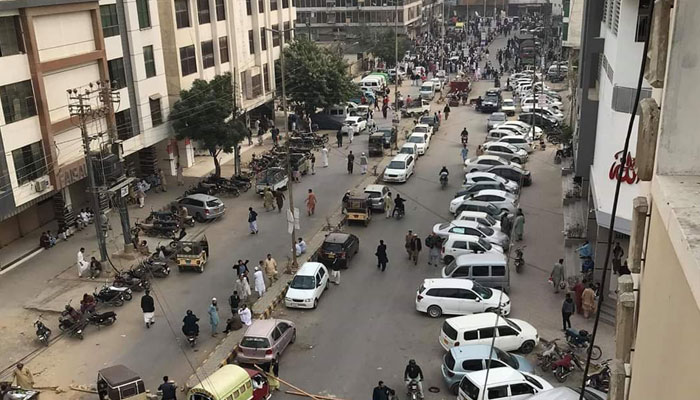
Traders protest as Customs seizes ‘smuggled goods’ in Tariq Road raid
Following a meeting with the provincial governor on Monday night, traders called off their strike against an early morning raid of the Customs at a mall on Tariq Road.
According to Customs authorities, they seized smuggled clothing items worth millions of rupees during the raid, which was conducted at a mall on Tariq Road on a tip-off about the presence of non-customs paid clothing items, according to the Customs.
The seized goods were shifted to the Customs House in five trucks for further investigation and legal procedure, said Customs authorities. When traders came to know about the action, they staged a protest in the afternoon and also announced a strike.
Angry protesters blocked the main road of the busy market area, causing traffic jams on the adjacent roads. The protest lasted for hours, with some demonstrators throwing dustbins and other items on Tariq Road. However, after a meeting with Sindh Governor Imran Ismail at the Governor House, they called off the strike and also ended their protest.
Lear MoreCustoms seizes contraband cigarettes, alcoholic beverages worth over RM13,000 in Bintulu
BINTULU: The Royal Malaysian Customs Department (JKDM) has seized a total of 194,360 sticks of contraband cigarettes and 29 litres of alcoholic beverages valued at RM13,985 with unpaid duties worth about RM132,218.75 from a premises in Bintulu yesterday.
Sarawak Customs director Datuk Sharifah Halimah Tuanku Taha in a statement today, said the operation was conducted around 10am on a premises at Jalan Sibiyu by the Bintulu Customs enforcement team.
“From the inspection, the raiding team has found some white and ‘kretek cigarettes’ of various brands and alcoholic beverages believed yet to be approved by Customs on the upper floor of the premises,” she said. According to her, a 43-year-old man was also detained to assist in investigation.
The case would be investigated under Section 135 of the Customs Act 1967, which carries a fine 10 times the value of the goods , or RM100,000, or jailed not less than six months and not exceeding five years or both, upon conviction.
Lear MoreCustoms nab two Sri Lankans smuggling illegal cigarettes worth Rs. 3.5 million
Colombo: Sri Lanka Customs officials have arrested two Sri Lankan passengers at the Katunayake Airport early this morning for attempting to illegally bring a stock of cigarettes into the country.
The two passengers have arrived on SriLankan flight UL 208 from Abu Dhabi at around 5.30 am.
According to the Customs Media unit, there were 287 cartons containing 59980 cigarettes in 129 packs. According to the customs officials the seized cigarettes are estimated be worth Rs. 3,598,800.
Further investigations are being conducted by the Customs unit at the Airport.
http://www.colombopage.com/archive_20A/Jan04_1578115443CH.php
Lear More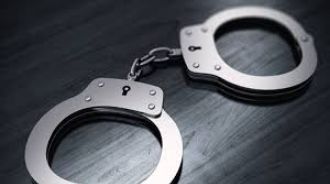
2 Indians arrested for gold smuggling
Kathmandu: Two Indian nationals have been arrested from the Tribhuvan International Airport here for allegedly trying to smuggle gold into the country, officials said on Friday.
Mohmad Kashif and Mohmad Mushrafeen were arrested separately on Thursday after their arrival at the airport.
“A total of 1.6 kg of semi-liquid gold was found in their possession for which they had not paid the mandatory custom duty,” a statement issued by the Nepal police said.
“Kashif brought the gold from Dubai on Nepal airlines flight while Mushrafeen brought the yellow metal from India on Indigo airlines flights. The duo have been handed over to the airport’s customs office for initiating necessary actions,” the statement said.
http://www.millenniumpost.in/world/2-indians-arrested-for-gold-smuggling-394238
Lear MoreCash currency smuggling: Proposed law seeks to increase penalties
The government has promulgated Tax Laws (Second Amendment) Ordinance 2019 for major increase in penalties on cash currency smuggling, ranging from $10,000- $200,000 and above, up to fine of ten times of value of currency and imprisonment up to 14 years depending on the amount of currency seized under different categories/slabs.
Briefing the media at FBR’s Headquarters here on Wednesday, FBR Member Inland Revenue (Policy) Dr Hamid Ateeq Sarwar, FBR Member Customs (Policy) Javed Ghani and FBR Member IT Asim Ahmed stated that the Presidential Ordinance has been promulgated and it would be laid down before the National Assembly on Thursday (today).
Penalties have been considerably increased for smuggling of dollars, precious stones and jewelry under the said Ordinance.
Dr Hamid Ateeq Sarwar said that being a finance bill, there is no problem to pass it from National Assembly but keeping in view the requirement of Financial Action Task Force (FATF), the government has immediately promulgated Tax Laws (Second Amendment) Ordinance 2019.
Lear MoreCustoms stems financial bleed, prevents RM8.5m in cigarette smuggling at Johor port
ISKANDAR PUTERI, Jan 1 — An attempt to sneak in 10,500 sticks of cigarettes from the country without paying tax was foiled at Johor’s Port of Tanjung Pelepas on Christmas Eve.
The shipment of contraband goods bound for overseas markets had been listed as furniture. If the smuggling attempt had been successful, Malaysia would have lost RM8.5 million, including tax, Johor Customs director Datuk Mohammad Hamidan Maryani said today.
Hamidan said his officers were tipped off that smugglers were taking advantage of a faulty cargo scanner at the port on December 24, 2019 to ship in contraband goods.
Malay Mail understands the said RM12 million scanner is the only one at the southern port and has been in service for 16 years.
Lear More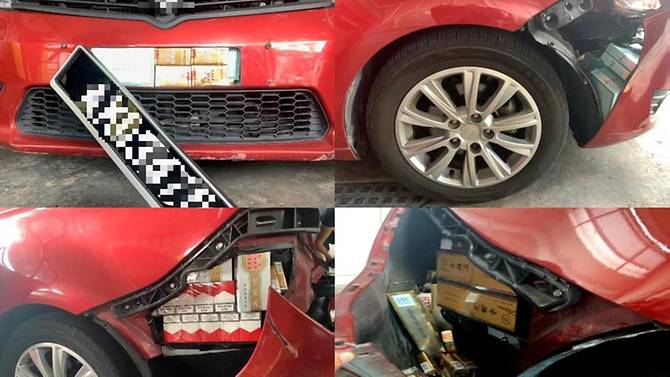
Cigarettes found hidden in modified car compartments at Woodlands Checkpoint
SINGAPORE: Immigration and Checkpoints Authority (ICA) officers uncovered three separate attempts to smuggle contraband cigarettes into Singapore during the last two weeks of the year.
In total, more than 600 cartons and 1,600 packets of cigarettes were seized by officers at the Woodlands Checkpoint.
Last week, two smuggling attempts were foiled when officers discovered 556 cartons and 1,458 packets of cigarettes in various modified compartments of two Malaysia-registered cars, ICA said in a Facebook post on Tuesday (Dec 31). In the first case on Dec 29, officers found an assortment of duty-unpaid cigarettes hidden within the modified dashboard, floorboard, fuel tank and rear bumper of the vehicle
On Dec 27, more contraband cigarettes were confiscated after officers found the items stashed within the front and rear bumpers, modified dashboard, gear compartment and side panels of another car.
Lear More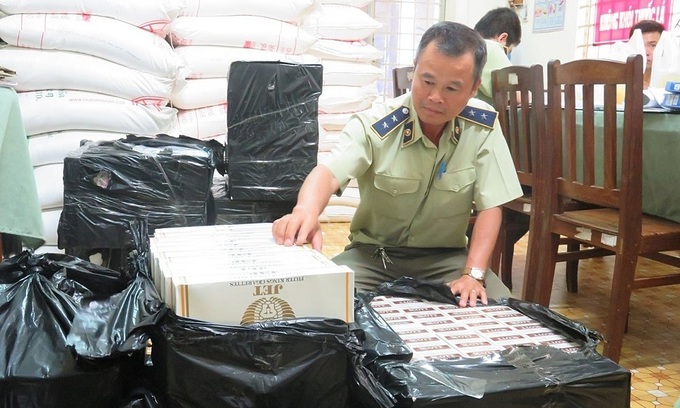
Cigarette smuggling costs Vietnam hundreds of millions of dollars
Vietnam loses tens of trillions of dong (VND10 trillion = $432 million) a year due to cigarette smuggling, a long-standing problem.
Nguyen Triet, General Secretary of Vietnam Tobacco Association, estimates that just one percent of smuggled cigarettes are caught.
The value of smuggled cigarettes accounts for up to 25 percent of the market each year, he said.
In the last five years, an average of 700 million packs of cigarettes a year have passed through Vietnam’s borders with China, Laos and Cambodia.
Long An Province in the Mekong Delta remains a “hot” location for cigarette smuggling, officials say. Almost 900 cases have been discovered in the first 10 months this year and 1.57 million cigarette packs confiscated, according to the National Steering Committee on Combating Smuggling, Commercial Fraud and Counterfeit Goods.
Pham Duc Chinh, Head of Long An Province’s Market Surveillance Department, said that because the province’s border with Cambodia was very porous, controlling smuggling is difficult.
Lear More9 Turkmenistan Women Arrested For Smuggling At Delhi Airport: Police
New Delhi: In a major operation, nine women from Turkmenistan were arrested for allegedly trying to smuggle out of the country foreign currencies worth around Rs 3.83 crore at Delhi airport, officials said on Monday.
A total of 105 people were intercepted — 59 women and 46 men — when they were travelling to Turkmenistan on Wednesday, they said.
“Personal and baggage search of the 88 passengers and rummaging of flight resulted in the recovery of foreign currency $7,98,840 equivalent to Rs 5.64 crore,” a statement issued by the customs department said. Further, 48 passengers were released along with their foreign currency, as they were carrying foreign currency under permissible limit, it said.
Furthermore, remaining foreign currency — $5,41,961, equivalent to Rs 3.83 crore was seized under the relevant provisions of the Customs Act, the statement said. Out of the remaining 40 passengers, nine of them — all women were placed under arrest, the officials said, quoting the statement.
Lear More


